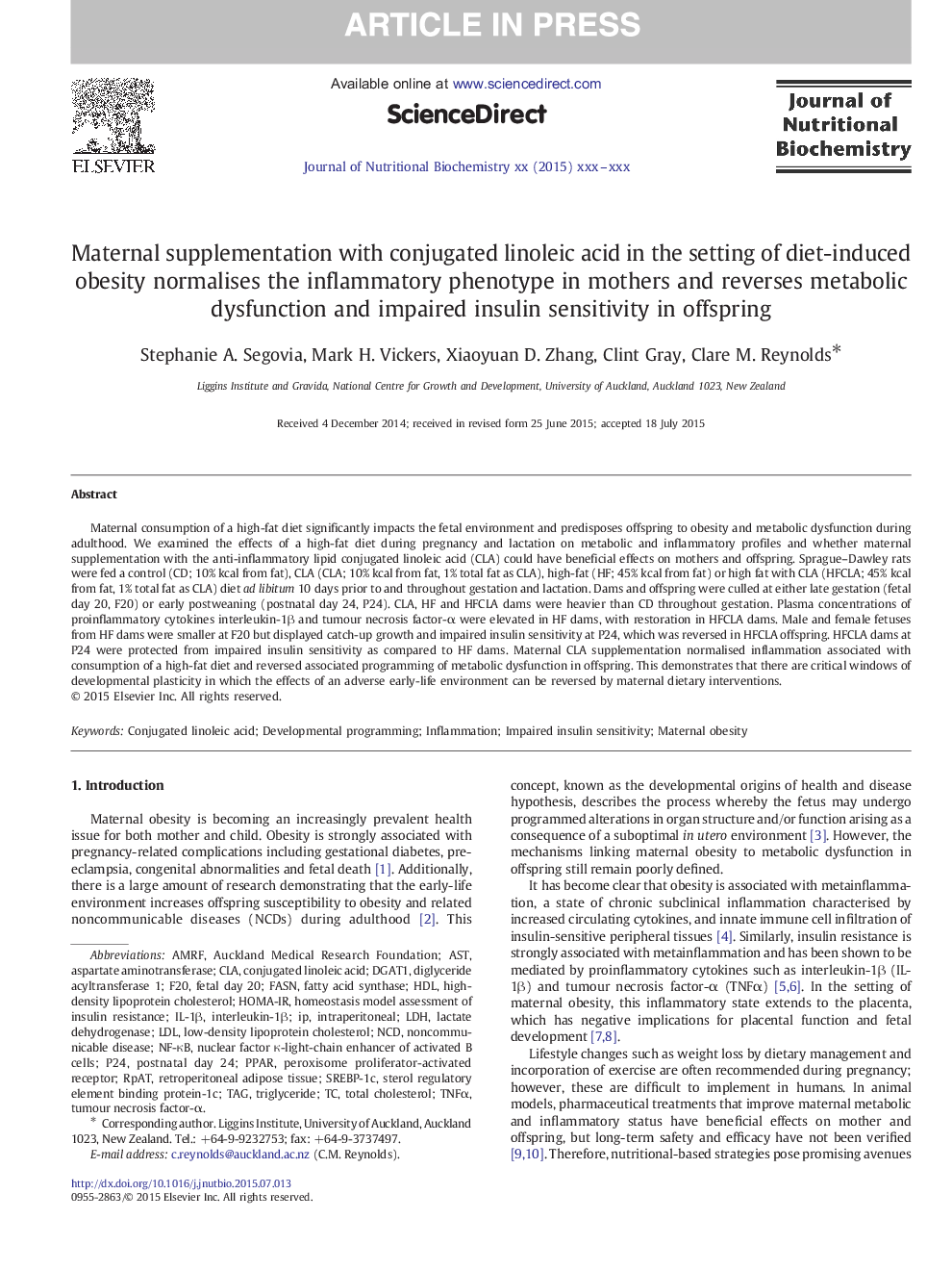| Article ID | Journal | Published Year | Pages | File Type |
|---|---|---|---|---|
| 8336755 | The Journal of Nutritional Biochemistry | 2015 | 10 Pages |
Abstract
Maternal consumption of a high-fat diet significantly impacts the fetal environment and predisposes offspring to obesity and metabolic dysfunction during adulthood. We examined the effects of a high-fat diet during pregnancy and lactation on metabolic and inflammatory profiles and whether maternal supplementation with the anti-inflammatory lipid conjugated linoleic acid (CLA) could have beneficial effects on mothers and offspring. Sprague-Dawley rats were fed a control (CD; 10% kcal from fat), CLA (CLA; 10% kcal from fat, 1% total fat as CLA), high-fat (HF; 45% kcal from fat) or high fat with CLA (HFCLA; 45% kcal from fat, 1% total fat as CLA) diet ad libitum 10 days prior to and throughout gestation and lactation. Dams and offspring were culled at either late gestation (fetal day 20, F20) or early postweaning (postnatal day 24, P24). CLA, HF and HFCLA dams were heavier than CD throughout gestation. Plasma concentrations of proinflammatory cytokines interleukin-1β and tumour necrosis factor-α were elevated in HF dams, with restoration in HFCLA dams. Male and female fetuses from HF dams were smaller at F20 but displayed catch-up growth and impaired insulin sensitivity at P24, which was reversed in HFCLA offspring. HFCLA dams at P24 were protected from impaired insulin sensitivity as compared to HF dams. Maternal CLA supplementation normalised inflammation associated with consumption of a high-fat diet and reversed associated programming of metabolic dysfunction in offspring. This demonstrates that there are critical windows of developmental plasticity in which the effects of an adverse early-life environment can be reversed by maternal dietary interventions.
Keywords
HOMA-IRnuclear factor κ-light-chain enhancer of activated B cellsF20DGAT1p24NCDIL-1βPPARNF-κBCLATNFαSREBP-1cHDLASTAspartate aminotransferasehomeostasis model assessment of insulin resistanceconjugated linoleic acidfatty acid synthaseinflammationInterleukin-1βDevelopmental programmingNoncommunicable diseaseTAG یا triacylglycerols triglyceridetumour necrosis factor-αintraperitonealFasnlactate dehydrogenaseLDHhigh-density lipoprotein cholesterolLDLSterol regulatory element binding protein-1cMaternal obesitytotal cholesterolLow-density lipoprotein cholesterolperoxisome proliferator-activated receptor
Related Topics
Life Sciences
Biochemistry, Genetics and Molecular Biology
Biochemistry
Authors
Stephanie A. Segovia, Mark H. Vickers, Xiaoyuan D. Zhang, Clint Gray, Clare M. Reynolds,
